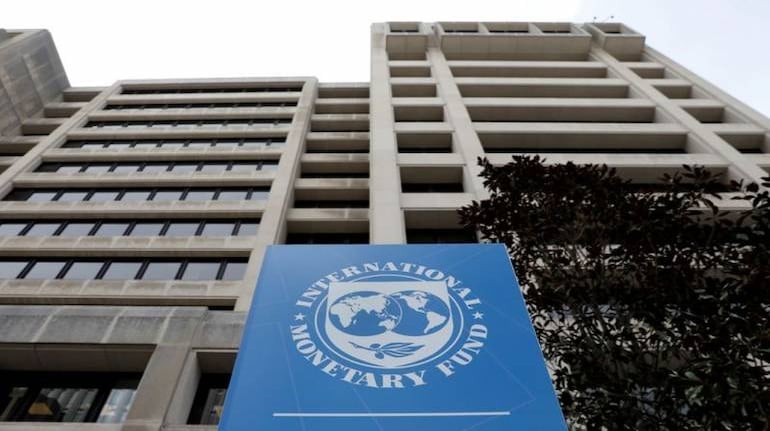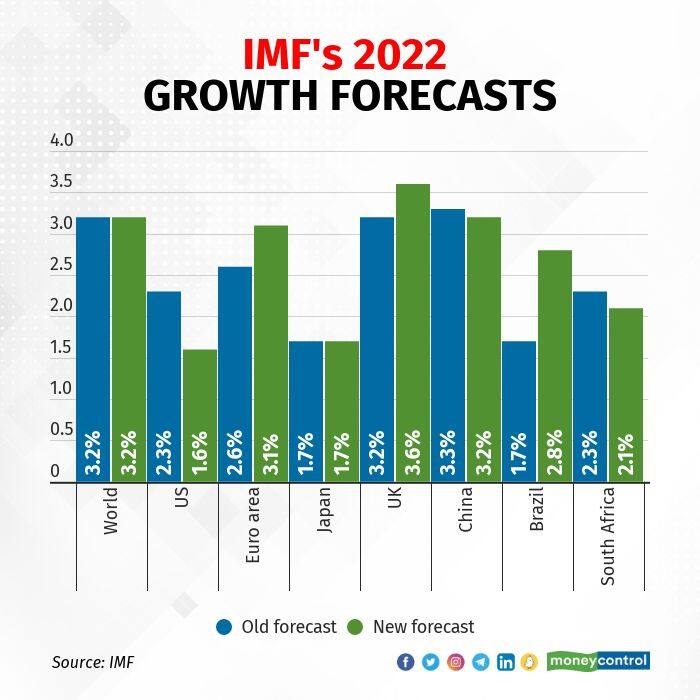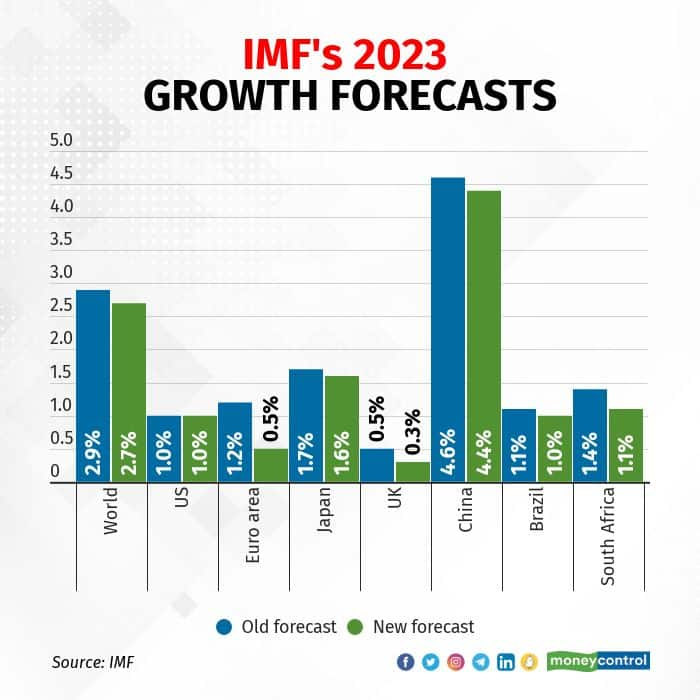



The International Monetary Fund (IMF) has announced another cut to its gross domestic product (GDP) growth forecast for India for the current financial year, this time by 60 basis points to 6.8 percent.
At 6.8 percent, the multilateral agency's forecast is below that of the Reserve Bank of India (RBI), which on September 30 lowered it by 20 basis points to 7 percent.
One basis point is one-hundredth of a percentage point.
The growth downgrade reflects a "weaker-than-expected outturn in the second quarter and more subdued external demand", IMF said in the latest update to its World Economic Outlook report released on October 11.
Data released at the end of August showed that the Indian economy grew by 13.5 percent in April-June, thanks to a favourable base effect. The jump in growth, however, was lower than economists' forecasts of 15 percent and the RBI's projection of 16.2 percent.
While the IMF has cut the growth forecast for FY23 substantially, that for FY24 was left unchanged at 6.1 percent.
In its last update, released late July, the IMF had cut India's growth forecast for FY23 and FY24 by 80 basis points each.
The sharp cut for India announced on October 11 comes even as the global growth forecast for 2022 was left unchanged at 3.2 percent, though the US is now seen growing 1.6 percent this calendar year—70 basis points lower than what was predicted in July.

"As storm clouds gather, policymakers need to keep a steady hand," the IMF's report warned.
"The global economy continues to face steep challenges, shaped by the lingering effects of three powerful forces: the Russian invasion of Ukraine, a cost-of-living crisis caused by persistent and broadening inflation pressures, and the slowdown in China," it added.
Also read: Worst is yet to come, warns IMF's top economist Pierre-Olivier Gourinchas
While 10 basis points have been shaved off China's 2022 growth forecast, the world's second-largest economy is seen growing 20 bps slower in 2023 at 4.4 percent.

"In China, the frequent lockdowns under its zero COVID policy have taken a toll on the economy, especially in the second quarter of 2022. Furthermore, the property sector, representing about one-fifth of economic activity in China, is rapidly weakening. Given the size of China's economy and its importance for global supply chains, this will weigh heavily on global trade and activity," the IMF further said.
The Russian economy is seen contracting 3.4 percent in 2022 and 2.3 percent in 2023. The number for 2022 is a huge upward revision, with the IMF having forecast a 6 percent contraction for 2022 in July.
"The contraction in Russia's economy is less severe than earlier projected, reflecting resilience in crude oil exports and in domestic demand with greater fiscal and monetary policy support and a restoration of confidence in the financial system," the IMF pointed out.
Ukraine, on the other hand, is projected to contract by 35 percent in 2022.
Discover the latest Business News, Sensex, and Nifty updates. Obtain Personal Finance insights, tax queries, and expert opinions on Moneycontrol or download the Moneycontrol App to stay updated!
Find the best of Al News in one place, specially curated for you every weekend.
Stay on top of the latest tech trends and biggest startup news.